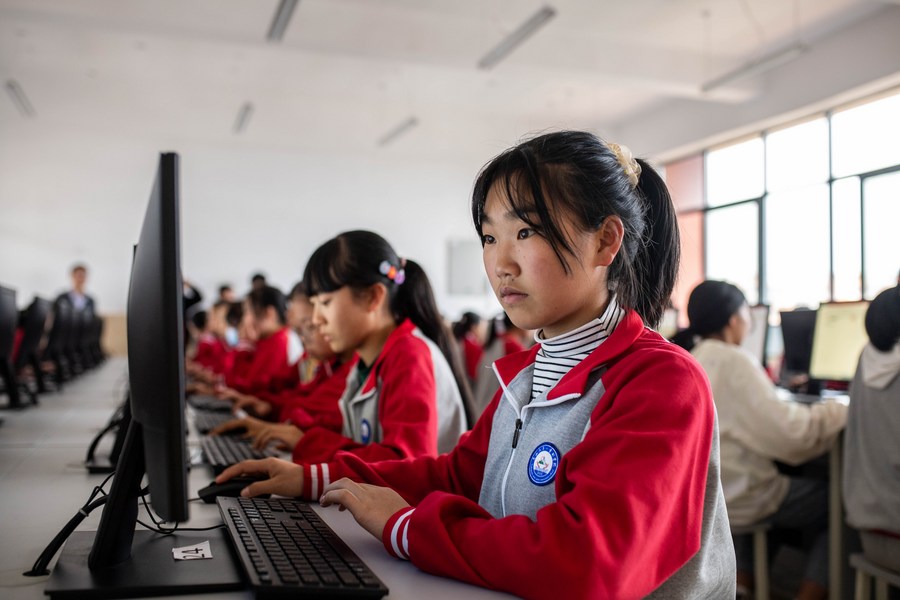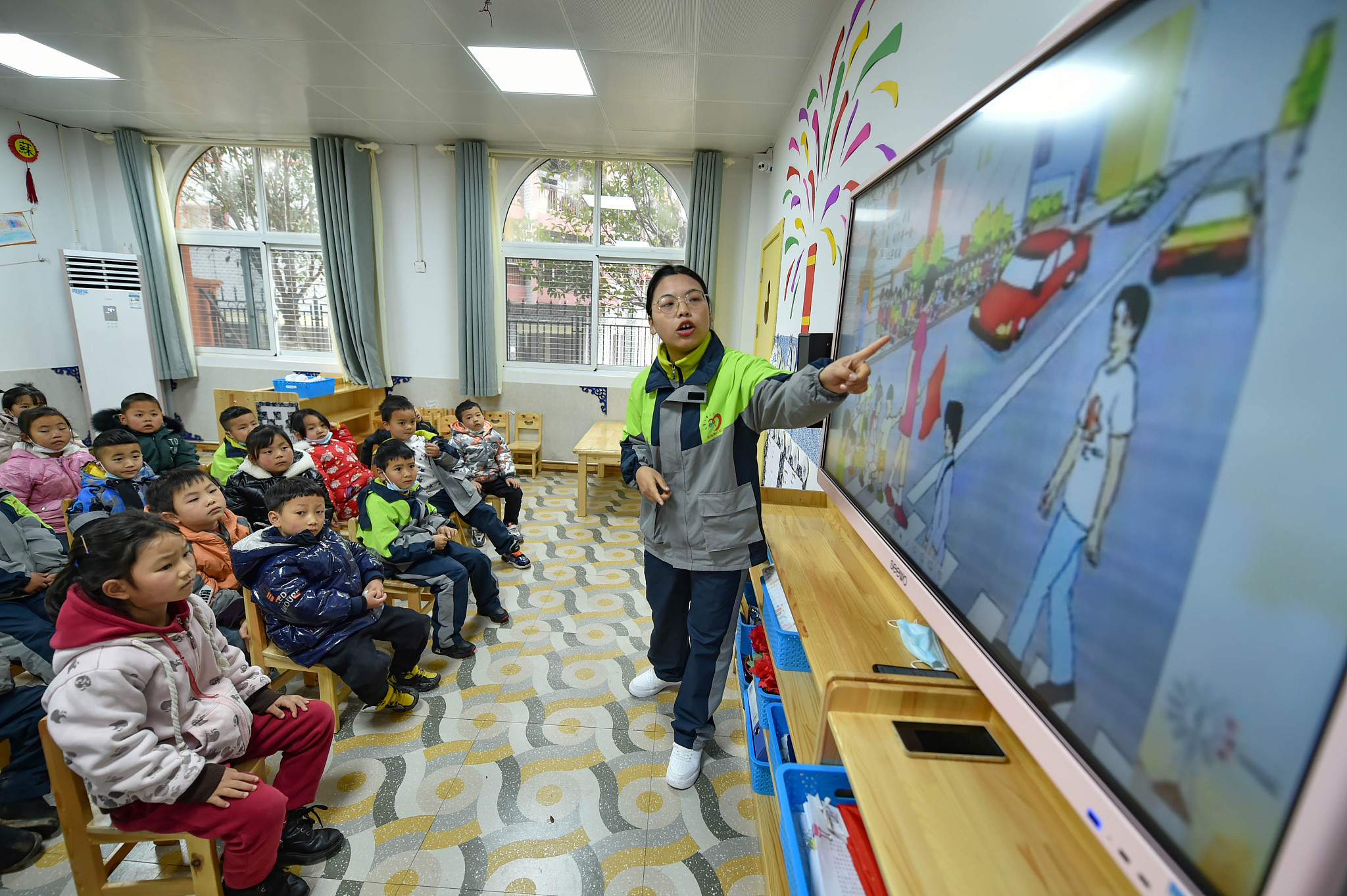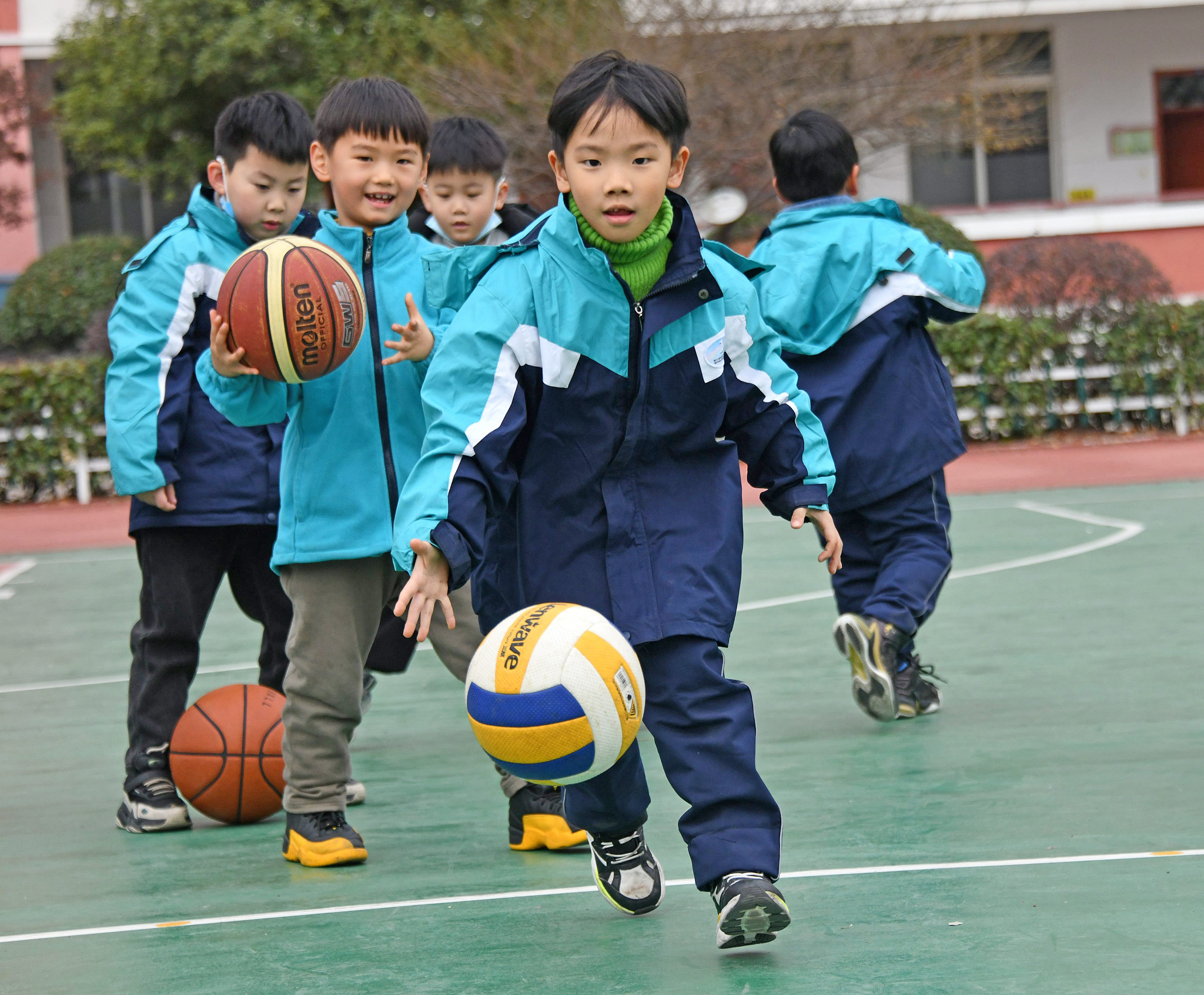
Primary students attend a class in Beijing, June 1, 2020. /CFP
Primary students attend a class in Beijing, June 1, 2020. /CFP
President Xi Jinping stressed building a high-quality and balanced basic public education system and a number of legislators and political advisors shared their thoughts on education reforms during the ongoing Two Sessions, the most important meetings on China's political calendar.
Close educational gap
On Saturday, Xi joined national political advisors from the education, medical and health sectors in a joint group meeting and heard their comments and suggestions.
When talking about disparate distribution of academic resources, Yan Chunhua, president of Lanzhou University, said, "China has made significant progress on higher education in the country's central and western regions in recent years. But compared with the eastern region, there is still a big gap, and it may be further enlarged."

A computer class at a school in a poverty-relief resettlement site in Zhenxiong County, Zhaotong City, southwest China's Yunnan Province, September 24, 2020. /Xinhua
A computer class at a school in a poverty-relief resettlement site in Zhenxiong County, Zhaotong City, southwest China's Yunnan Province, September 24, 2020. /Xinhua
Unbalanced and inadequate education is closely related to unbalanced and insufficient regional development, Xi responded, adding that the level of education in the central and western regions should be improved to promote these regions' social development, and the imbalance in education should be resolved to deal with other imbalances.
He said the government will strengthen the targeted and precise training of teachers in underdeveloped areas in the central and western regions, and implement the rural teacher support plan in depth.
This year's government work report, delivered by Premier Li Keqiang on March 5, also emphasized educational fairness. The report said it's important to promote the high-quality and balanced development of compulsory education and the integration of urban and rural areas, to strengthen weak links in the conditions for running schools in rural areas, and improve benefits for rural teachers.

A teacher gives a class to kindergarten children in Tongren, southwest China's Guizhou Province, March 1, 2021. /CFP
A teacher gives a class to kindergarten children in Tongren, southwest China's Guizhou Province, March 1, 2021. /CFP
Reform pre-school education
Another concern of many legislators and political advisors was pre-school education.
China saw its birth rate fall for the third year in a row from 2017 to 2019, the year in which the lowest birth rate since 1949 – 1.05 percent – was recorded, with 14.65 million people born across the country. To encourage people of suitable age to bear children, suggestions have been made to reform pre-school education.
Lin Yong, deputy to National People's Congress (NPC) and professor of South China Normal University, submitted a motion suggesting the inclusion of kindergartens in the compulsory education system. He explained that the high cost associated with pre-school education created great pressure on families and affected their desire to have children. The inclusion will reduce the difficulty in accessing and the high cost of enrolling in kindergartens, and alleviate people's worries.
Song Zhiping, member of the National Committee of the Chinese People's Political Consultative Conference (CPPCC), also proposed to extend the opening hours of kindergartens and primary schools to 6 p.m. allowing parents to pick their children after work. She also suggested reducing or exempting kindergarten fees for the second child.
Reflecting the aspirations of many people, their suggestions have become trending topics on China's social media, with millions of netizens discussing the issues.

Primary students take part in a physical education class in Taizhou, east China's Zhejiang Province, December 29, 2020. /CFP
Primary students take part in a physical education class in Taizhou, east China's Zhejiang Province, December 29, 2020. /CFP
More attention paid on students' mental and physical health
"Good education should nurture lifelong exercisers, responsibility takers, problem solvers and graceful-life performers, and give children a healthy and excellent personality to win future happiness and benefit the country and society," said Tang Jiangpeng, principal of Xishan Senior High School in east China's Jiangsu Province at the Deputies' Corridor on Sunday. His words won wide acclaim.
Students' mental and physical health has been paid more attention by NPC deputies and CPPCC members on this year's Two Sessions.
Chu Xinhong, principal of Yueyangdao Primary School in Tianjin Municipality, suggested setting up weekly mental health classes in compulsory education.
Cui Haixia, vice mayor of Hengshui Municipal Government in north China's Hebei Province, suggested the physical education test in the high school entrance examination be increased from once in three years to once a year in the three years. The three scores would add up to the final result to encourage students to exercise regularly.
Doctor Li Suyan suggested including students' physical health and visual acuity, in the evaluation system to prevent schools and parents from obtaining good grades at the cost of children's eyesight.

